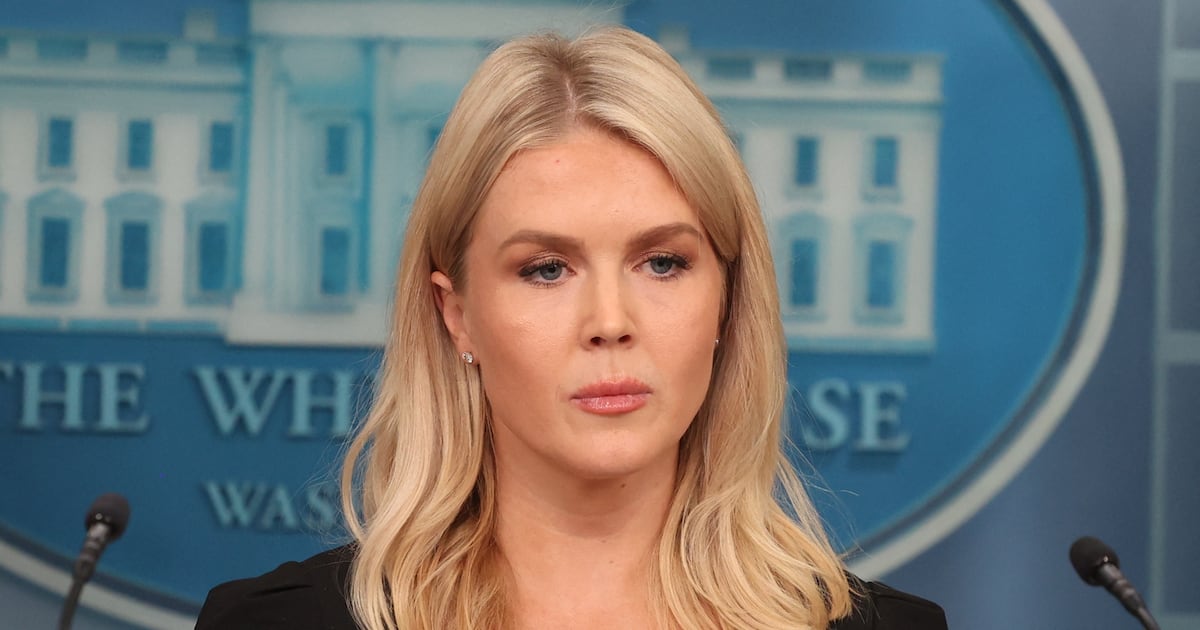“Oops” means you screwed up, you’re sorry, you’re human just like the rest of us. And who doesn’t want a human president? Rick Perry’s presidential chances rest on that premise as he tries to recover from a historically awful #debatefail.
As they deal with potentially fatal political crises, Perry and Herman Cain present striking contrasts in damage control. Team Cain’s response to sexual-harassment allegations has been so bad that conservative blogger Erick Erickson says Cain should fire his staff and start over. Perry is executing a model approach after his painful memory lapse in Wednesday’s debate that was seen by millions.
Veteran Republican media consultant Alex Castellanos says he’s never been a big Perry fan (he compares him to a coffee table book that’s “all pretty pictures and no text” that “nobody picks up twice”). But he does credit Perry with near-heroic efforts since he went blank for nearly a whole minute while trying to summon the name of the third federal agency he would eliminate if elected. “I can’t remember a candidate who has tackled a campaign crisis so forcefully and so strongly,” Castellanos told me.
That doesn’t mean Perry is going to vault back into contention as a frontrunner for the GOP nomination. But here are five things he’s done right since his brain-freeze:
1. Perry acknowledged and fixed his misstep in a disarming way in real time. A few minutes after fumbling, stumbling, and failing to get beyond the Education and Commerce departments, he prefaced his answer to another question with “and by the way, that was the Department of Energy I was reaching for a while ago.”

2. Perry showed up personally in the post-debate “spin room” to try to defuse the mess. Perry spokesman Mark Miner told me Thursday that Perry “knew what he did” and that he needed to address it. He was equipped with one-liners like this one: “I’m sure glad I had my boots on, because I sure stepped in it out there.” Later, @GovernorPerry tweeted the same joke and added an on-point message: “I did still name 2 agencies to eliminate. Obama has never done that!”
3. The Perry team sent a letter to “friends and supporters” at 2 a.m.—just a few hours after the devastating moment. The headline: “So, what agency would you like most to forget?” The opening paragraph: “We’ve all had human moments. President Obama is still trying to find all 57 states. Ronald Reagan got lost somewhere on the Pacific Highway in an answer to a debate question. Gerald Ford ate a tamale without removing the husk. And tonight Rick Perry forgot the third agency he wants to eliminate. Just goes to show there are too damn many federal agencies.”
The letter goes on to ask supporters to submit suggestions for the federal agency they’d most like to forget. “Is it the EPA and its job-killing zealots? The NLRB and its czar-like dictates? The edu-crats at the Department of Education who aim to control your local curriculum? Send your answer to forgetmenot@rickperry.org.” There’s also an appeal for a $5 donation for every agency a supporter would like to forget.
4. Perry put himself in front of every camera and microphone he could find on Thursday. His gigs included the ABC, CBS, NBC, Fox News, and CNN morning shows, Laura Ingraham’s radio show, and interviews with Fox’s Megyn Kelly and Greta Van Susteren. He read "Top 10 Rick Perry Excuses" on David Letterman Thursday night, cracking jokes like "hey, you try concentrating with Mitt Romney smiling at you. That's one handsome dude." The exposure allowed Perry to repeatedly inject himself into the conversations everyone was having about his screw-up, show he was a good sport, and demonstrate tenacity.
5. Perry stuck to a consistent, self-deprecating Everyman message. He smiled through all the interviews Thursday and, referring to an afternoon appearance on Fox, joked on Twitter that “I hope they don’t lose the feed before the third question!” Asked on NBC’s Today show if he had a message for the Saturday Night Live writers preparing the inevitable skit about his misfortune, he replied, “I hope they get the agencies right.” Van Susteren wanted to know what his wife Anita said to him after a gaffe that pundits variously judged the worst, most devastating, and most embarrassing in debate history. “I love you,” Mrs. Perry said, according to her husband, and there was no teasing.
There were tough moments during the media offensive. Fox host Gretchen Carlson asked Perry how he could possibly recover from polls that showed him at 5 percent in Pennsylvania and Florida and 4 percent in Ohio. CNN host Christine Romans said Perry’s performance made people wonder if he could handle the world stage. “Convince us that this is not the end of your candidacy,” she said.
Yet Perry also managed to turn some of the face time to his own purposes. On CNN he worked in how he had “consolidated down” the Commerce Department in Texas to achieve both savings and efficiency. And everywhere, every time, he repeated his mantra that he is not the slickest politician or debater, he’s human, all candidates are imperfect, and it’s his conservative values and Texas jobs record that will count with voters.
All in all it was fast, textbook damage control under difficult circumstances. “It’s a campaign and you need to move quickly. We decided to take the issue head on,” Miner told me. Perry, he said, is “not a person of excuses. He’s not going to try to pretend something didn’t happen. He’s not going to run from something. When something like this happens, he’s the first to say ‘I messed up.’”
The Cain story, involving allegations by four women that he harassed them in the 1990s, is far more complicated. Cain denies all the claims and now has a lawyer and damage-control team. Yet for days after Politico broke its story on Oct. 30, he and his campaign aides tried to blame Democrats, the news media, and even the Perry campaign for their problems (Perry and his team deny any role). They conveyed mixed messages—a spokesman initially did not deny the allegations—and Cain himself has offered what Chris Matthews called “rolling disclosures” about two settlement agreements, their payouts, and the incidents that led to them.
Chief of staff Mark Block, meanwhile, implied nefarious motives to a reporter he said he had confirmed worked for Politico and was related to one of the accusers, Karen Kraushaar. Except that the reporter doesn’t work for Politico and isn’t related to Kraushaar. At a National Journal Election Preview, Block also tipped off the media—inadvertently, it seemed—to a related incident in which women at an Iowa radio station said they were uncomfortable with Cain.
Erickson wrote an open letter to Cain on Thursday, saying he has broken his vow to hire the best people. “You’ve surrounded yourself with Class A failures,” Erickson wrote. “The communications strategy has been an unmitigated disaster.” He called Cain’s advisers Keystone Kops and said they are disproving Cain’s contention that he is a good manager.
Perry started with political professionals and has brought more veteran hands on board in recent weeks. Their strategy this week has been Class A—and yet it is unlikely to work. That’s because those 53 seconds on Wednesday night were not an isolated incident. They were the heart-stopping exclamation point on a whole season of weak Perry debate performances—all captured on videotape.






